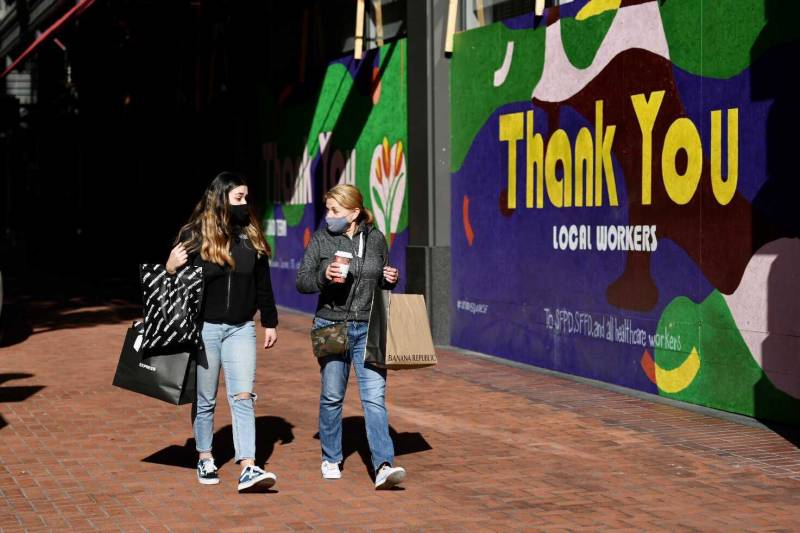Gov. Gavin Newsom on Monday announced the statewide launch of a smartphone app that notifies users when they have been exposed to other users who have tested positive for COVID-19.
The CA Notify app, which will be available to download across the state on Apple and Google smartphones starting Thursday, is a voluntary, opt-in program. That means “the more people that participate, the more effective this program can be,” Newsom said Monday at a press briefing.
Developed in partnership with Google and Apple — and piloted by researchers at UC San Diego and UCSF — the app uses Bluetooth technology to exchange random codes between phones without revealing either users’ identity or location. Any user who tests positive for the virus will receive a text from the state Department of Public Health with a verification code to enter into the app. Other users who have been within 6 feet for 15 minutes or more of that person in the last 14 days will receive an anonymous notification of possible exposure.

